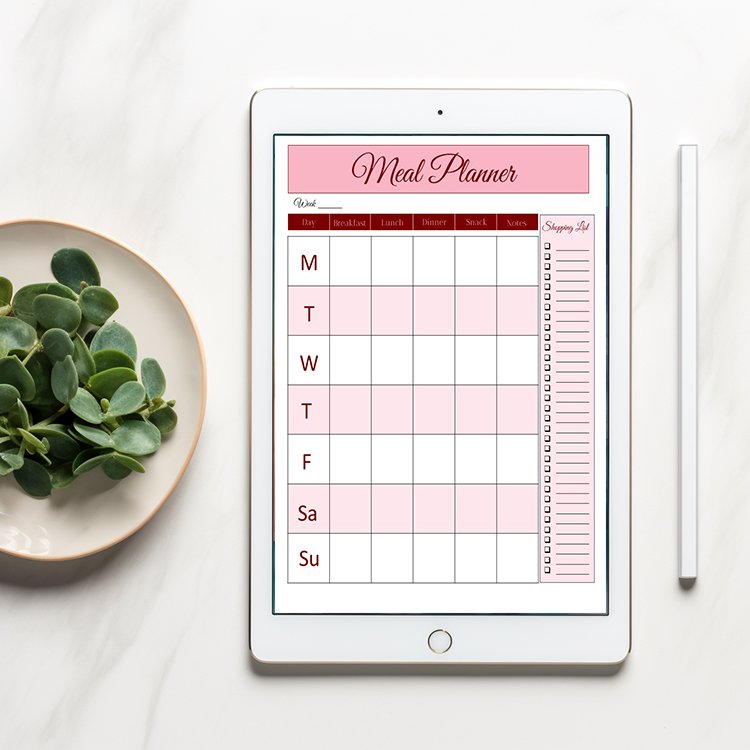What's For Dinner? Printable Meal Planners Part 1
Save money, save time and eat healthier by using a meal planner. Learn about how to choose the right one for you!
Benefits of meal planners
- Meet your goals
- Fit your schedule
- Organize your life
- Get all your nutrients
- Avoid last minute unhealthy decisions
- No last minute trips to supermarket
- Buy only what you need
Meet your goals
When you think of meak planning, what goals come to mind?
I know I want to eat healthy food. I want to lose weight and gain muscle. Saving money and decreasing stress are important for me, too.
What about you?
Meal planners are tools that help you plan your meals in advance, so you know exactly what you're going to eat and when.
Meal planning can help you avoid last-minute decisions, which often result in unhealthy choices. By planning your meals, you can ensure that you're getting all the nutrients you need, and you can also save money by buying only what you need.
Think about YOUR goals. Write them down. Once you've identified your goals, you can start planning your meals to meet those goals.
Consider your schedule
Look ahead to your schedule for the week and think about meals that will fit in. Preparation time, cooking time, eating time, clean up time may make a meal difficult to have on a day full of meetings and appointments, but perfect for a different day.
Save Money
Organize
Keep track of important details such as dietary restrictions, cooking time, and serving sizes
Know when you need to replenish pantry and refrigerator items,
Stay organized and reduce stress by planning your meals in advance.
Types of Meal Planners
Weekly Meal Planners
People who want to plan their meals on a week-to-week basis use Weekly Meal Planners. These planners have a space for each day of the week, and sections for breakfast, lunch, dinner and snacks.
You can easily see what you need to buy at the grocery store and avoid last-minute trips to the store.
Monthly Meal Planners
Monthly Meal Planners are for the better organized who know their schedule and store sales far enough in advance.
They include a section for each day of the month and sections for breakfast, lunch, dinner and snack plans for each day.
Dietary Preference Planners
Dietary Preference Planners are intended for people with specific restrictions. This could include diabetes, weight loss, vegan, vegetarian, sports training, lactose-free, gluten-free and many more.
In addition to the usual sections, sections addressing the area of emphasis are added, e.g., total calories, today's weight, macros, etc
Meal Planning Process
- Check the pantry and fridge
- Choose recipes that match your diet, tastes and time available
- List the ingredients in the recipes
- Cross off the ones you already have
- Write your shopping list
Tomorrow: Meal planning templates


Love meal planning and meal prep, makes every part of my life and self-care so much easier!
Kate, what a great idea! When I was young, I was often planning meals for 6. And just assembling the grocery list was a project. Now I’m cooking for one, so little planning is called for. Thanks for the cool ideas.
I notice that in the meal planner picture, there are spaces for all three meals. My biggest challenge and need for planning is with dinner. It would really help with grocery shopping.